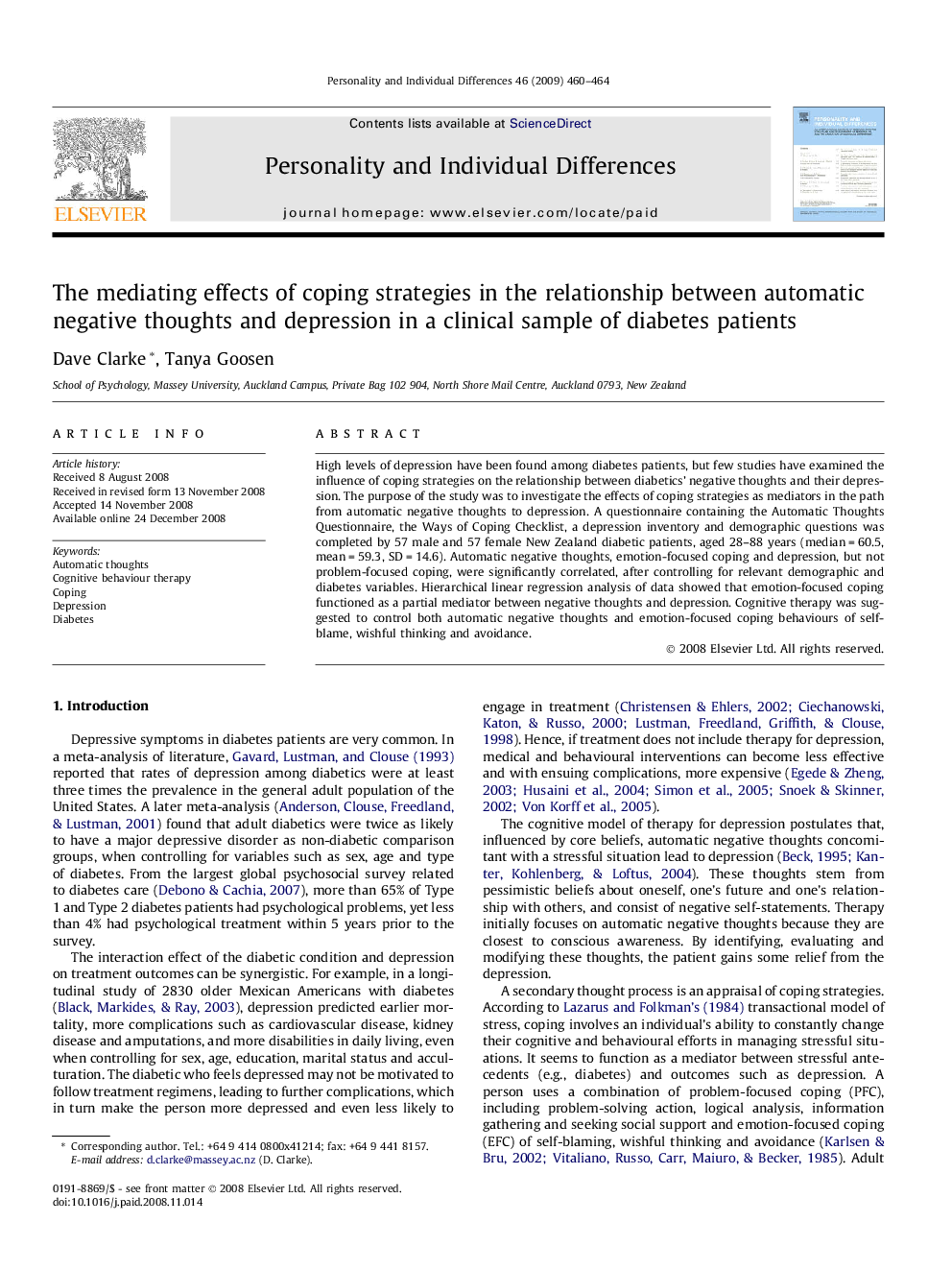| Article ID | Journal | Published Year | Pages | File Type |
|---|---|---|---|---|
| 892435 | Personality and Individual Differences | 2009 | 5 Pages |
High levels of depression have been found among diabetes patients, but few studies have examined the influence of coping strategies on the relationship between diabetics’ negative thoughts and their depression. The purpose of the study was to investigate the effects of coping strategies as mediators in the path from automatic negative thoughts to depression. A questionnaire containing the Automatic Thoughts Questionnaire, the Ways of Coping Checklist, a depression inventory and demographic questions was completed by 57 male and 57 female New Zealand diabetic patients, aged 28–88 years (median = 60.5, mean = 59.3, SD = 14.6). Automatic negative thoughts, emotion-focused coping and depression, but not problem-focused coping, were significantly correlated, after controlling for relevant demographic and diabetes variables. Hierarchical linear regression analysis of data showed that emotion-focused coping functioned as a partial mediator between negative thoughts and depression. Cognitive therapy was suggested to control both automatic negative thoughts and emotion-focused coping behaviours of self-blame, wishful thinking and avoidance.
